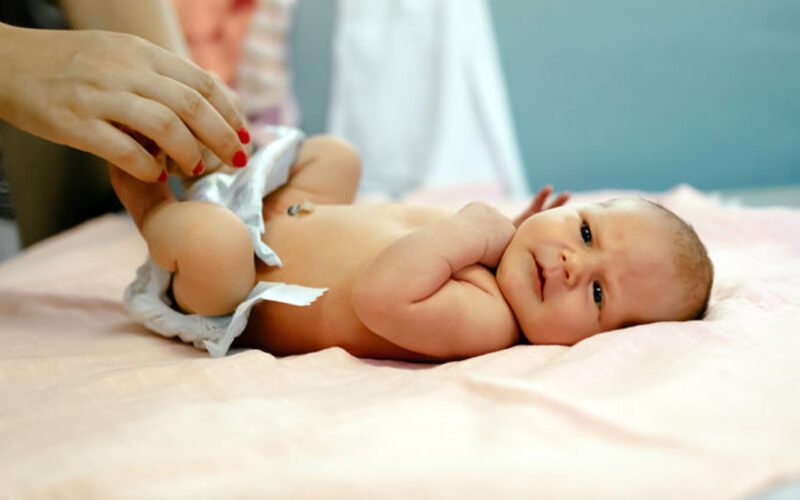An Australian “sexuality educator” has created a heated debate among online users for suggesting that parents ask a baby for permission before changing their diapers.
Deanne Carson argues that a “culture of consent” needs to start at birth, sparking curiosity and confusion from the online community, with one netizen asking if it’s also necessary to get “consent from your cat to change its litter tray.”
In a world where parenting techniques are evolving faster than ever, the topic of consent is making its way into unexpected areas, including diaper changes.
Asking a baby for consent before a changing a dirty nappy might sound impractical, mostly because newborns and infants lack the verbal skills to reply.
But Deanne Carson argues that it’s less about receiving a formal answer and more about setting the foundation for consent and respectful boundaries as early as possible.
According to Carson – who describes herself as a “sexuality educator, speaker, and author” on Twitter – a culture of consent needs to start at birth.

Should You Ask a Baby’s Permission to Change Their Diaper? The Controversial Debate Over ‘Consent Culture’ in Parenting
A parenting approach that emphasizes respect for a child’s autonomy is making waves—and sparking debate. Advocate Deanne Carson suggests that by narrating actions like, “I’m going to change your diaper now, is that okay?” and then pausing to read the baby’s body language, parents can begin introducing the concept of personal agency from infancy.
Building Trust Through Early Communication
Carson, who has described herself as a sexuality educator, clarifies that she’s not expecting a verbal “yes” from babies. Instead, the practice is meant to foster two-way communication and trust.
“Of course, a baby isn’t going to say, ‘Yes mum, that sounds great,’” Carson told Australia’s ABC network. “But leaving a moment to make eye contact or observe their body language lets the child know their response matters.”
Many pediatricians and child development experts agree that responding to non-verbal cues—like coos, gestures, or facial expressions—is essential for healthy interaction. Incorporating consent in routines like diaper changes may help babies feel more secure and involved in their care.
Critics Slam the Concept as Impractical
However, not everyone is on board. Critics argue that babies are far too young to grasp the idea of consent, calling the practice unnecessary or even absurd.
Rowan Dean, editor of The Spectator Australia, dismissed the idea as “lefty lunacy,” while American psychologist and columnist John Rosemond wrote in the Reno Gazette Journal that Carson’s philosophy turns parenting into a “culture of confusion and dysfunction.”
“Once upon a time, someone suggesting we ask a baby for permission to change their diaper would’ve been considered delusional,” Rosemond said. “This isn’t a culture of consent—it’s chaos.”
The Internet Reacts
Online, Carson’s remarks ignited fierce backlash, with many mocking her credentials and questioning her real-world experience with children.
One commenter joked, “Pretty sure when a baby’s crying from a full diaper, that is consent—more like a demand.”
Another wrote, “If your cat doesn’t need consent to clean its litter tray, why should a baby? If it stinks, change it!”
Some went as far as calling the suggestion dangerous, arguing that delaying diaper changes could be considered neglect.
Others Defend the Intent
Despite the criticism, some users defended Carson’s broader message—arguing that while the diaper example may have missed the mark, the intention to teach respect and consent early is admirable.
“I’m shocked at the outrage,” one user wrote. “Babies learn to communicate long before they speak. What’s the harm in showing respect?”
Another chimed in, “She’s encouraging a bigger conversation about consent. She just took it a bit far.”
And a third added, “I agree with Carson—it’s easy to talk to your baby and model a climate of respect at home.”
Respecting Different Parenting Styles
While opinions remain divided, many agree on the importance of being mindful and communicative with infants. Whether that includes asking for diaper-changing “consent” or simply observing a baby’s cues, the goal is the same: nurturing a respectful, responsive bond.
In the end, whether or not to ask a baby for permission comes down to personal parenting philosophy. For some, it’s a meaningful gesture toward building mutual respect. For others, attentiveness and care without formal consent is more than enough.







